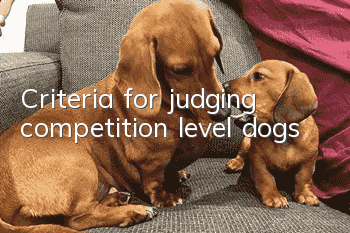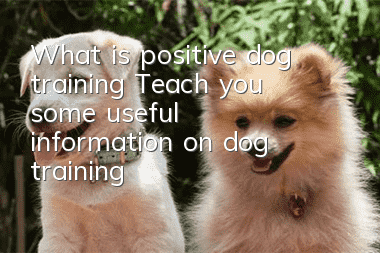Criteria for judging competition level dogs

For some experienced breeders, it is a relatively easy task to evaluate a puppy that will perform well in future competitions. For most people, who do not have such rich experience and knowledge, a good dog with the potential to compete will slip through their fingers.
Determining whether a puppy has the potential to compete is a matter of experience and knowledge, and a test of your judgment. An experienced breeder knows far more about his own dog's bloodline than he does about other dog's bloodlines. They rarely make mistakes in this area, which is something most breeders don't have. They have tunnel vision and only see or are willing to see what they want to see. The referee can make or break a competition-level dog. A well-known racing dog will have certain advantages, which may sometimes make it difficult for other dogs to defeat it in the ring. This phenomenon is very common in competitions. It's not surprising if a champion dog with a great reputation is defeated by a dog with no reputation at all. It's part of the game. Sometimes the definition of a show dog is not so clear-cut. It’s impossible to know anything if you don’t experience it or participate in it.
Generally speaking, judges can be divided into single-breed experts, multi-dog experts and all-breed experts. Within groups, some dog breeds are more attractive and popular than others. This means that some judges will favor the popular, more attractive breeds (negative judges). An experienced all-breed judge will consider a dog's overall qualities comprehensively, and their extensive knowledge will not allow them to be influenced by the popularity of the dog. Some recent judges have become too idealistic. Mature judges will be more realistic. As one veteran said, "I am not responsible for the quality of the dogs participating in the competition. My job is to judge the quality of the dogs. Pick the best of them and go home." There are always some judges who have some unique quirks that make the lives of the contestants more interesting.
Nowadays, it is difficult to find a referee with his own distinctive personality on the court. Records show that the ancestors of most competition-level dogs have the bloodlines of several champion dogs. It seems to be a simple equation: quality inheritance and quality, style inheritance and style, this is DNA. If a dog inherits inferior genes, its overall quality may not make it a champion dog. So can he give birth to an excellent champion child? Will it become an excellent show class? Margaret Migliorini once had a champion Dalmatian, but the ancestor of the champion cannot be found in its pedigree certificate. But such examples are only in the minority and do not prove anything. An effective way to achieve success is to have a good dog from the start. So how to do it? You can find those who are reputable, or you can find those whose names are published in magazines.The breeder on the ambition. Find more useful advice or knowledge from them, and improve your abilities humbly and prudently.
A breeder once wrote a letter to one of our authors stating that she was not sure whether the puppy she was breeding was a show dog. Before the author had time to reply, the second letter arrived. The puppy scored 4 main points in 4 consecutive games and completed the championship landing. But in most cases, taking an immature puppy into a high-level competition is just a waste of more money. It is difficult for an immature puppy to achieve championship landing. A puppy that often loses races will become an adult dog that regularly wins races, as a breeder with good judgment will be patient enough to wait for it to mature.
What I want to explain here is: Patience is a rare advantage that only a few people have, and most successful people have it. Sometimes if you lose your patience, you lose everything.
- What should I do if my puppy has diarrhea? What medicine should I take?
- Are King Charles spaniels lively?
- What should I do if my Russian Shepherd vomits after eating too much?
- Why does a dog keep panting despite no strenuous exercise?
- What is the best way to deal with golden retriever hair loss?
- How to stop a dog that likes to chase cars?
- Flanders Cattle Dog appearance characteristics and feeding methods | Price
- What should you do if your dog behaves aggressively towards its owner?
- What should I do if Bian Mu catches a cold?
- Dog Pyoderma Symptoms



